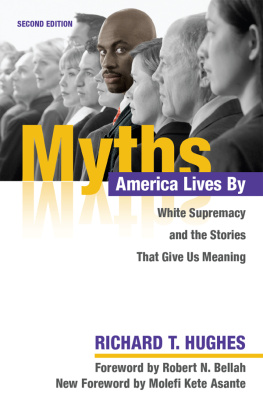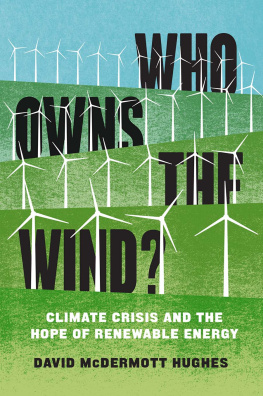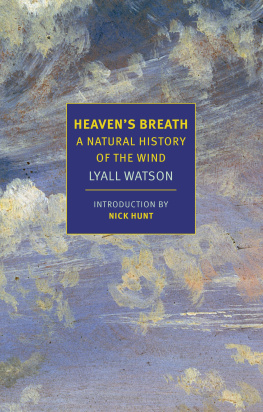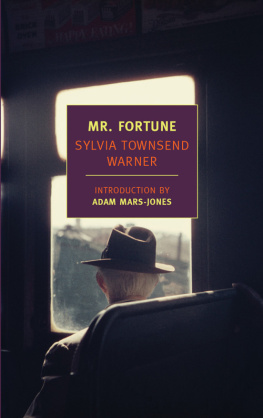Richard Hughes - A High Wind in Jamaica (New York Review Books Classics)
Here you can read online Richard Hughes - A High Wind in Jamaica (New York Review Books Classics) full text of the book (entire story) in english for free. Download pdf and epub, get meaning, cover and reviews about this ebook. year: 1999, publisher: NYRB Classics, genre: Detective and thriller. Description of the work, (preface) as well as reviews are available. Best literature library LitArk.com created for fans of good reading and offers a wide selection of genres:
Romance novel
Science fiction
Adventure
Detective
Science
History
Home and family
Prose
Art
Politics
Computer
Non-fiction
Religion
Business
Children
Humor
Choose a favorite category and find really read worthwhile books. Enjoy immersion in the world of imagination, feel the emotions of the characters or learn something new for yourself, make an fascinating discovery.

- Book:A High Wind in Jamaica (New York Review Books Classics)
- Author:
- Publisher:NYRB Classics
- Genre:
- Year:1999
- Rating:3 / 5
- Favourites:Add to favourites
- Your mark:
- 60
- 1
- 2
- 3
- 4
- 5
A High Wind in Jamaica (New York Review Books Classics): summary, description and annotation
We offer to read an annotation, description, summary or preface (depends on what the author of the book "A High Wind in Jamaica (New York Review Books Classics)" wrote himself). If you haven't found the necessary information about the book — write in the comments, we will try to find it.
A High Wind in Jamaica (New York Review Books Classics) — read online for free the complete book (whole text) full work
Below is the text of the book, divided by pages. System saving the place of the last page read, allows you to conveniently read the book "A High Wind in Jamaica (New York Review Books Classics)" online for free, without having to search again every time where you left off. Put a bookmark, and you can go to the page where you finished reading at any time.
Font size:
Interval:
Bookmark:


RICHARD HUGHES (19001976) attended Oxford and lived for most of his life in a castle in Wales. His other books includeThe Fox in the AtticandThe Wooden Shepherdess, the rst two volumes of The Human Predicament, an unnished trilogy about the rise of German Fascism and the onset of World War II.
FRANCINE PROSE is the author of nine novels, two story collections, and most recently a collection of novellas,GuidedTours of Hell. Her stories and essays have appeared in numerous publications.
A High Wind in Jamaica
Richard Hughes
Introduction by Francine Prose
New York Review Books
New York
Contents
Introduction
First the vague premonitory chillfamiliar, seductive, unwelcomethen the syrupy aura coating the visible world, through which its colors and edges appear ever more lurid and sharp...The experience of reading Richard HughessA High Wind in Jamaica(a book in which swoons and febrile states play a critical role) evokes the somatic sensations of falling ill, as a child. Indeed it recalls much about childhood that we thought (or might have wished) we had forgotten, while it labors with sly intelligence to dismantle the moral constructs that our adult selves have so painstakingly assembled.
The book opens among the ruined houses of the West Indies, slave quarters and mansions democratically leveled by earthquake, re, rain, and deadlier vegetation, and features a frightening cameo appearance of the Misses Parkers, a pair of bedridden elderly heiresses starved to death by their servants amid ormolu clocks and the bloodied feathers of slaughtered chickens. The scene is grim, fantastical, but the novels language is delicate and precisethere is a humorous, chirpy cerebration to its narrative voiceand right away we are conscious of, and troubled by, the dissonance between tone and contentone that turns out, however, to be central to the shocking story Hughes has to tell. For on the surface,A High Windin Jamaicais an adventure yarn involving ve British children captured by a crew of pirates. But underneath this high-spirited romp is a story about murder, senseless violence, gothic sexuality, and capricious betrayal, a narrative that more nearly evokes the pictures of the outsiderartist Henry Darger than those of, say, Kate Greenaway.
When we rst meet the Bas-Thornton family, they are living in Jamaica, where Mr. Thornton is involved in business of some kind. The children have business of their own, most of it involving the serial cruelty with which they treat the islands hapless indigenous fauna. In this paradise for English children, John, the eldest son, catches rats for the degustation and sport of Tabby, the familys half-wild pet cat, itself fond of mortal combat with poisonous snakes. Emily, the oldest of three girls, whose deeply peculiar experience and consciousness is at the center of the novel, has a passion for catching houselizards without their dropping their tails off, which they do when frightened.... Her room was full of these and other pets, some alive, others probably dead.
The younger Thorntons sphere is so distantso differentfrom that of their parents that they might as well be feral children. Mr. and Mrs. Thornton have no idea who their offspring are, or about the steamy, highly charged dramas that they are secretly enacting. This sort of life was very peaceful, and might be excellent for nervy children like John; but a child like Emily, thought Mrs. Thornton, who is far from nervy, really needs some sort of stimulus and excitement, or there is a danger of her mind going to sleep altogether for ever. This life was too vegetable. It takes a typhoon blowing the roof off the family housean event upstaged for the children by Tabbys murder by a pack of wild cats amidst thunder and lightningbefore the grown-up Thorntons decide that the island life really is unsuitable, and send their brood off to Britain on theClorinda.
By this point, Hughes has subjected us to a kind of Pavlovian conditioning: every time an animal appears, we brace ourselves for the worst. But even this protective recoil cannot quite prepare us for the grisly scene in which the crew of theClorindaattempts to amputate a monkeys cancerous tailand in the ensuing mayhem, are overtaken and captured by pirates. Nor can we possibly anticipate the brutality that transpires later, while the pirates are pleasantly occupied with their riotous efforts to make the circus lion and tiger ght. Throughout the book, both nature and human nature are sinister, threatening. The physicality of animal lifewhen Emily goes for a swim, hundreds of infant sh were tickling with their inquisitive mouths every inch of her body, a sort of expressionless light kissingis abominable. The setting sununusually large and red, as if he threatened something peculiarseems predatory and perverted. The children themselves are, essentially, animate Petri dishes in which a diabolic yeast proliferates, and our initial fondness for the bumbling pirates is tempered by some nasty scenes. Captain Jonsens drunken display of murky attention leads Emily to defend herself by biting his thumb, and later there is a creepy moment when he looks in on the sleeping children and, knowing that Emily is awake and watching, icks his ngernail against baby Lauras bare and upraised bottom.
Hughes is not afraid to dwell on startling, uncomfortable verities about the world and its inhabitants, and one of the things he does most impressively inA High Windin Jamaicais to put a wicked spin on the Romantic notion of the childthe Wordsworthian innocent-savant. He suggests that children are closer than adults to nature, that the way that they view sexmysterious, fascinating, incomprehensible, repulsive, responsible for weird alliances and even stranger behavioris the way sex really is. Passion between consenting adults is a polite convention compared to the immediate realities of the ashy, twittering drag queens who assist the pirates in the capture of theClorinda, or the night Emily gets to spend in bed with a pet alligator, or the suffocating kisses little Edward receives from a fat, mustachioed old woman who grabs him during the pirates Cuban layover (Edward could no more have struggled than if caught by a boa. Moreover, the portentous woman fascinated him, as if she had been a boa indeed. He lay in her arms limp, self-conscious, and dejected: but without active thought of escape.)
The confusions and seductions, horrors and comforts of Emilys relationship with the captain, and later with the bewitching Louisa Dawsona passenger on the steamer to which the pirates eventually surrender the children, and which brings them to Englandbelong to the same polymorphous realm of attraction and repugnance as her encounter with the kissing sh. The captain amuses himself by drawing the sort of sexual doodles that might be done by a young boy. At one point he draws over the gures Emily has penciled on the wall of her bunk:
Jonsen could only draw two things: ships, and naked women.... He took the pencil: and before long there began to appear between Emilys crude uncertain lines round thighs, rounder bellies, high swelling bosoms, all somewhat in the manner of Rubens.
This scene of a grown man amending a girls scribblings has an upsetting, sensational edge that recalls a childs skewed perspective on physicality; it is all the more disturbing for its weird aspect of innocence. If adult sexuality seems unhealthily like a childs, adult morality is hardly more mature or developed. Everyone lies and keeps poisonous secrets, especially the children. (Grown-ups embark on a life of deception with considerable misgivings, and generally fail. But not so children. A child can hide the most appalling secret without the least effort, and is practically secure against detection.) Everyone, of every age, behaves according to an almost psychotically private and individual set of moral criteria: its wrong to mention underwear and call adults by their rst names but permissible (or hardly worth noting) to lie to God in ones prayers and misdirect a court of law convened to try a capital offense. No one has much of a memory; the children adapt quickly to separation from their parents and recover from the shock of a death among them with alarming ease and exibility. By the end of the book, what the children have been told about their ordeal by the adults (who themselves have little or no interest in the truth) has blended with, or replaced, their sense of what really occurred. And when we meet the lawyers directing the trial that occupies the nal section of the novel, we realize that these representatives of justice and high civilizationafter all that wildness!are little better than pirates in robes and periwigs. They are men, Hughes slyly informs us, whose interest in the world is the opposite of a writers: It is the novelist who is concerned with facts, whose job it is to say what a particular man did do on a particular occasion: the lawyer does not, cannot be expected to go further than to show what the ordinary man would be most likely to do under presumed circumstances.
Font size:
Interval:
Bookmark:
Similar books «A High Wind in Jamaica (New York Review Books Classics)»
Look at similar books to A High Wind in Jamaica (New York Review Books Classics). We have selected literature similar in name and meaning in the hope of providing readers with more options to find new, interesting, not yet read works.
Discussion, reviews of the book A High Wind in Jamaica (New York Review Books Classics) and just readers' own opinions. Leave your comments, write what you think about the work, its meaning or the main characters. Specify what exactly you liked and what you didn't like, and why you think so.





